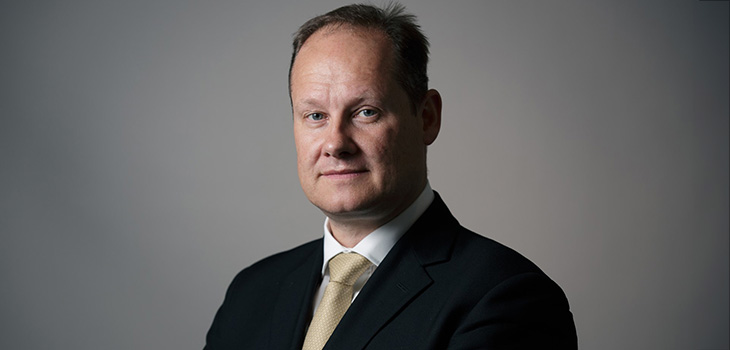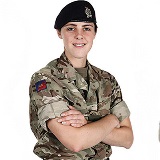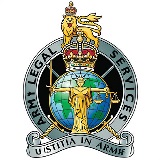*/

David Malone, Deputy Chief Crown Prosecutor, tells Anthony Inglese CB about Go Prosecute, the pilot scheme offering 10 recently qualified self-employed barristers the opportunity to develop prosecution experience at the CPS for up to two years before resuming practice in chambers
‘Knowing what I know now, this is exactly what I would have done had I been offered it at the start of my career.’ David Malone, Deputy Chief Crown Prosecutor, London North is talking about Go Prosecute, the new Crown Prosecution Service (CPS) pilot scheme launched on 28 October 2024 and championed by Director of Public Prosecutions, Stephen Parkinson.
‘It’s a scheme aimed at newly qualified members of chambers in their first year or two as tenants, but we will also consider applications from barristers within their first few years of practice. We have got funding for 10 barristers, with potential to increase this in future. They will come to us for up to two years. The scheme opens up all Crown Court work to them save for contested trials, together with Magistrates’ Courts and Youth Court work. They will be developed and mentored in a collegiate atmosphere alongside our own talented advocates, and will receive other benefits of being in employment.
Go Prosecute has been welcomed by Sam Townend KC, Chair of the Bar, as ‘an excellent initiative that will not only provide invaluable experience and training for early career barristers, but also help to bolster the workforce needed to prosecute cases’.
‘Employed practice provides to new barristers the opportunity to learn different skills and to widen their expertise. As a profession we are open to greater transference between the employed and self-employed Bar,’ Townend added.
Malone himself joined the CPS from a leading set of chambers at a senior level in 2019. He graduated at Sheffield in biochemistry, then converted to law, was called in 1998, built a criminal practice and became a head of chambers. But in the midst of lengthy trials, and with family responsibilities, he spotted an advert for a CPS secondment.
‘I was offered a two-year secondment at the CPS as deputy head of the Specialist Fraud Division and took it. I thought I knew everything about prosecution work and about the CPS. But it was an eye-opener. I gained insight into the CPS’s internal structures and how it worked with the police and its other stakeholders. You get a better picture from within; you see why things are done in a certain way. Things come to us at a much earlier stage than in chambers. We have more time to pause and reflect on the strategy for our cases.’
At the end of the secondment Malone was going to return to the chambers but was then given the opportunity to join the CPS as Deputy CCP in London South. ‘So I stayed on. I felt that at this stage of my career it would suit me and the experience I had to offer.’
Among Malone’s responsibilities is oversight of Go Prosecute. He will be chairing the recruitment panel, overseeing the recruits’ postings and taking an active interest in their training and mentoring. ‘It’s a national scheme, so the successful recruits could come from any part of England and Wales and will need to be placed locally. I’ll be working closely with Chief Crown Prosecutor Martin Goldman, who leads for the CPS on our advocacy strategy. We are hoping that the first recruits will arrive in January.’ He will also be overseeing CPS advocacy across the whole of London. ‘My passion for advocacy has never dimmed. As advocacy champion I want to reinvigorate CPS advocacy and our relationship with the self-employed Bar in London and beyond.
‘At the end of the first year we will take stock of how the pilot is working and any lessons learned. I hope we will be able to continue and even expand it.’
How does Go Prosecute fit into the bigger picture? ‘The backlog is our biggest priority. We need more people, and that means doing more to attract and retain advocates. For years we have been recruiting our own trainees – a fairly equal mix of pupils and trainee solicitors. The CPS takes on 25% of criminal pupils, the self-employed Bar the rest. CPS recruitment is currently running at about 80 Legal Trainees a year and we have recently established a Crown Advocate 1 [CA1] role to more closely match the organic growth of self-employed advocates. But that’s not enough. We need to collectively increase advocacy numbers to do the work we have to do both now and in the future.
‘During the pandemic, we lost many criminal barristers between the critical 8 and 10 year call. So, something must be done. Prior to the introduction of the CA1 role, we retained about two-thirds of our barrister legal trainees/pupils. Upon completion of their pupillage this September, 90% of our 2024 barrister legal trainee cohort moved into the CA1 role.’
Mary Prior KC, Chair of the Criminal Bar Association (CBA) has described the creation of the CA1 role as a ‘brilliant initiative’ to increase the retention rate of CPS pupils. ‘Plainly, the time, effort and financial input that the employed and self-employed Bar put into enabling the profession to continue to thrive is vital to its survival,’ she said in her Monday Message on 28 October 2024. ‘However, it must be recognised that enabling pupils to join the criminal Bar is a huge investment for individual sets of chambers who fund pupillages from their barristers’ own taxed income,’ the CBA Chair added.
Malone says: ‘One aim of the scheme is to help the self-employed Bar by increasing its capacity for criminal work and by building up the skills of its members. This is emphatically not a scheme aimed at luring new barristers away from chambers – quite the contrary. On their return to chambers they will get more serious prosecution work, and will get it more quickly. They will have built close working relationships with many individuals in the CPS. We hope it will supercharge their careers at pace.’
‘We work with the Bar Council, the Criminal Bar Association, the heads of chambers and their senior clerks. Increasing capacity is a regular topic for us all. I have formal meetings with the heads and the clerks. Of course, we talk a lot to each other throughout the year. These personal relationships are vital.’ He speaks with authority as a former head of chambers.
The CPS smoothed out its lower grades so as to ensure better progression through the different layers of complexity of its work for both the participants in the pilot and its own recently qualified pupils and trainee solicitors. The aim is to get them into the Crown Court earlier than previously. ‘The CPS has recognised that our grades didn’t align with the organic growth you get at the Bar. In my early days I progressed through levels of complexity and sensitivity, starting in the Magistrates’ and Youth Court, before transitioning to Crown Court trials. Then came the moment of trepidation when I got on my feet for my first jury trial.’
Malone fondly recalls his first jury trial and ponders whether his new advocacy role will allow him to don his wig and gown once again.
‘It was an organic journey. Our new grading structure will ensure that CPS advocacy now reflects the sort of journey I had. Equally, the CPS has so much to offer to the self-employed Bar – and that is what Go Prosecute is all about. We can all learn from each other.’
More information about Go Prosecute can be found here. Applications for the 2024 intake closed on 17 November 2024.

‘Knowing what I know now, this is exactly what I would have done had I been offered it at the start of my career.’ David Malone, Deputy Chief Crown Prosecutor, London North is talking about Go Prosecute, the new Crown Prosecution Service (CPS) pilot scheme launched on 28 October 2024 and championed by Director of Public Prosecutions, Stephen Parkinson.
‘It’s a scheme aimed at newly qualified members of chambers in their first year or two as tenants, but we will also consider applications from barristers within their first few years of practice. We have got funding for 10 barristers, with potential to increase this in future. They will come to us for up to two years. The scheme opens up all Crown Court work to them save for contested trials, together with Magistrates’ Courts and Youth Court work. They will be developed and mentored in a collegiate atmosphere alongside our own talented advocates, and will receive other benefits of being in employment.
Go Prosecute has been welcomed by Sam Townend KC, Chair of the Bar, as ‘an excellent initiative that will not only provide invaluable experience and training for early career barristers, but also help to bolster the workforce needed to prosecute cases’.
‘Employed practice provides to new barristers the opportunity to learn different skills and to widen their expertise. As a profession we are open to greater transference between the employed and self-employed Bar,’ Townend added.
Malone himself joined the CPS from a leading set of chambers at a senior level in 2019. He graduated at Sheffield in biochemistry, then converted to law, was called in 1998, built a criminal practice and became a head of chambers. But in the midst of lengthy trials, and with family responsibilities, he spotted an advert for a CPS secondment.
‘I was offered a two-year secondment at the CPS as deputy head of the Specialist Fraud Division and took it. I thought I knew everything about prosecution work and about the CPS. But it was an eye-opener. I gained insight into the CPS’s internal structures and how it worked with the police and its other stakeholders. You get a better picture from within; you see why things are done in a certain way. Things come to us at a much earlier stage than in chambers. We have more time to pause and reflect on the strategy for our cases.’
At the end of the secondment Malone was going to return to the chambers but was then given the opportunity to join the CPS as Deputy CCP in London South. ‘So I stayed on. I felt that at this stage of my career it would suit me and the experience I had to offer.’
Among Malone’s responsibilities is oversight of Go Prosecute. He will be chairing the recruitment panel, overseeing the recruits’ postings and taking an active interest in their training and mentoring. ‘It’s a national scheme, so the successful recruits could come from any part of England and Wales and will need to be placed locally. I’ll be working closely with Chief Crown Prosecutor Martin Goldman, who leads for the CPS on our advocacy strategy. We are hoping that the first recruits will arrive in January.’ He will also be overseeing CPS advocacy across the whole of London. ‘My passion for advocacy has never dimmed. As advocacy champion I want to reinvigorate CPS advocacy and our relationship with the self-employed Bar in London and beyond.
‘At the end of the first year we will take stock of how the pilot is working and any lessons learned. I hope we will be able to continue and even expand it.’
How does Go Prosecute fit into the bigger picture? ‘The backlog is our biggest priority. We need more people, and that means doing more to attract and retain advocates. For years we have been recruiting our own trainees – a fairly equal mix of pupils and trainee solicitors. The CPS takes on 25% of criminal pupils, the self-employed Bar the rest. CPS recruitment is currently running at about 80 Legal Trainees a year and we have recently established a Crown Advocate 1 [CA1] role to more closely match the organic growth of self-employed advocates. But that’s not enough. We need to collectively increase advocacy numbers to do the work we have to do both now and in the future.
‘During the pandemic, we lost many criminal barristers between the critical 8 and 10 year call. So, something must be done. Prior to the introduction of the CA1 role, we retained about two-thirds of our barrister legal trainees/pupils. Upon completion of their pupillage this September, 90% of our 2024 barrister legal trainee cohort moved into the CA1 role.’
Mary Prior KC, Chair of the Criminal Bar Association (CBA) has described the creation of the CA1 role as a ‘brilliant initiative’ to increase the retention rate of CPS pupils. ‘Plainly, the time, effort and financial input that the employed and self-employed Bar put into enabling the profession to continue to thrive is vital to its survival,’ she said in her Monday Message on 28 October 2024. ‘However, it must be recognised that enabling pupils to join the criminal Bar is a huge investment for individual sets of chambers who fund pupillages from their barristers’ own taxed income,’ the CBA Chair added.
Malone says: ‘One aim of the scheme is to help the self-employed Bar by increasing its capacity for criminal work and by building up the skills of its members. This is emphatically not a scheme aimed at luring new barristers away from chambers – quite the contrary. On their return to chambers they will get more serious prosecution work, and will get it more quickly. They will have built close working relationships with many individuals in the CPS. We hope it will supercharge their careers at pace.’
‘We work with the Bar Council, the Criminal Bar Association, the heads of chambers and their senior clerks. Increasing capacity is a regular topic for us all. I have formal meetings with the heads and the clerks. Of course, we talk a lot to each other throughout the year. These personal relationships are vital.’ He speaks with authority as a former head of chambers.
The CPS smoothed out its lower grades so as to ensure better progression through the different layers of complexity of its work for both the participants in the pilot and its own recently qualified pupils and trainee solicitors. The aim is to get them into the Crown Court earlier than previously. ‘The CPS has recognised that our grades didn’t align with the organic growth you get at the Bar. In my early days I progressed through levels of complexity and sensitivity, starting in the Magistrates’ and Youth Court, before transitioning to Crown Court trials. Then came the moment of trepidation when I got on my feet for my first jury trial.’
Malone fondly recalls his first jury trial and ponders whether his new advocacy role will allow him to don his wig and gown once again.
‘It was an organic journey. Our new grading structure will ensure that CPS advocacy now reflects the sort of journey I had. Equally, the CPS has so much to offer to the self-employed Bar – and that is what Go Prosecute is all about. We can all learn from each other.’
More information about Go Prosecute can be found here. Applications for the 2024 intake closed on 17 November 2024.
David Malone, Deputy Chief Crown Prosecutor, tells Anthony Inglese CB about Go Prosecute, the pilot scheme offering 10 recently qualified self-employed barristers the opportunity to develop prosecution experience at the CPS for up to two years before resuming practice in chambers

What’s it really like to work in the National Crime Agency’s in-house legal team? TM, a lawyer in the NCA’s Financial Disruptions Litigation team, shares a day in her life

By the Chartered Governance Institute UK Ireland

Q and A with Major Susie Brooke, Legal Officer in Army Legal Services

Have you considered being a barrister in the British Army? Here’s an insight into a career in Army Legal Services

Clare describes her journey from Crown Prosecution Service legal trainee to Senior Crown Prosecutor, a typical ‘day in the life’ and the inspiration she draws from her career

What's it like being a legal trainee at the Crown Prosecution Service? Amy describes what drew her to the role, the skills required and a typical day in the life